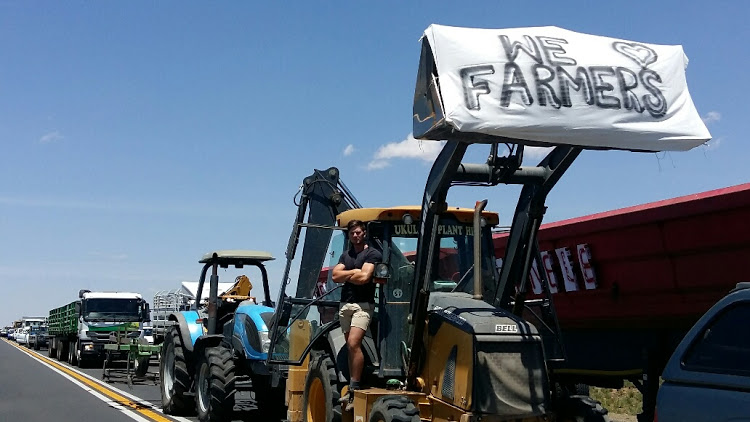… as Comrade Ramaphosa Caught Between Disgruntled Farm Workers and Disgruntled Rich Farmers.
Deputy Minister of Rural Development and Land Reform Mcebisi Skwatsha, in partnership with the Women on Farms Projects, an NGO working with women in commercial agriculture, visited a number of farms in Drakenstein and hosted a farm eviction dialogue with farmworkers at the Simondium Community Hall. Picture: Henk Kruger/African News Agency (ANA)
From Rusana Philander in Cape Town for TZ Business News.
The South African government will in the next few months draw up a national land reform plan which will look at land expropriation without compensation.
President Cyril Ramaphosa has set up an advisory panel focusing on land reform. It will advise the government on land redistribution. The panel will also look at the potential implementation of land expropriation and land reform.
Ramaphosa said they are looking to find a better solution for the land issue. He said that white land owners want to be part of the process that will secure stability in the country going forward. He said when the South African constitution was drawn-up, it included looking at the land issue.
At a recent event which celebrated the legacy of Nelson Mandela, at the Drakenstein Prison in Paarl, deputy minister of rural development and land reform Mcebisi Skwatsha, also talked about land reform and expropriation. He previously said that due to the huge amount of evictions of people from farms in the Western Cape, they identified the Western Cape as a test case for land expropriation without compensation. He said a lot of farm workers in the Drakenstein municipality in the Western Cape, are facing eviction from farms on which they have been working on for many years.
Carmen Louw co-director of Women on Farms, said: “According to the Drakenstein municipality it is expected that about 20 000 people will be evicted from farms.”
 Skwatsha said he wrote to Ramaphosa about putting a moratorium on farm evictions. He said the eviction of people from farms should stop. “We should not allow that our people be oppressed. I visited the farms in the Drakenstein area and saw the conditions people still live in, so many years after democracy. Coming out of the discussions we had with people across South Africa people agreed that land should be expropriated without compensation. Here in the Drakenstein there is no farm worker who owns land. When we say people should be getting land we are talking about productive land,” he said.
Skwatsha said he wrote to Ramaphosa about putting a moratorium on farm evictions. He said the eviction of people from farms should stop. “We should not allow that our people be oppressed. I visited the farms in the Drakenstein area and saw the conditions people still live in, so many years after democracy. Coming out of the discussions we had with people across South Africa people agreed that land should be expropriated without compensation. Here in the Drakenstein there is no farm worker who owns land. When we say people should be getting land we are talking about productive land,” he said.
Collette Solomon director of Women on Farms, said:”Women are evicted from farms on a daily basis. Farm workers made a contribution to agriculture in the Western Cape which dates back to the time of slavery. Farm workers work on these beautiful farms. It is their blood sweet and tears that contributed to the wealth of farmers in the Western Cape. In this province no farm worker owns land. Today 72% of women farm workers still do not have access to a toilet. And farm worker evictions are very high in the Drakenstein municipality. Every day people are being evicted. It will lead to 20 000 being evicted from farms. This is why we have made a call to president Cyril Ramaphosa to put a moratorium on farm evictions.”
Sobantu Mzwakali who helps people who have been evicted, said: “We also want president Ramaphosa to put a moratorium on farm evictions, because when people are evicted from farms they end up in squatter camps.”





